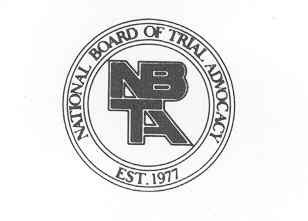Attorney McShane is a member in good standing of not only many legal associations and bar associations, but also scientific organizations as well including:
- Member, American Chemical Society (ACS)-Analytical Chemistry Division, Chemical Toxicology Division, and Chemistry & the Law Divisions
- Member, Central PA Local Section of the American Chemical Society
- Member, American College of Forensic Examiners International- Computer Forensics Division, Criminalistics Division, Investigations Division, Legal Division, Pharmacology Division, Private Investigation Division, and Toxicology

Attorney McShane has been selected to present at the Fall 2010 National Meeting & Exposition of the American Chemical Society which is being held on August 22-26, 2010 in Boston, MA.
Together with Dr. Joseph Citron, JD, MD and Dr. Albert Satubus, PharmD, PhD, Attorney McShane will present a afternoon workshop (12pm-5pm) on Tuesday, August 24, 2010.
Title for the Session is: “The Lack of Legal and Forensic Suitability of Enzymatic Assaying for Blood Alcohol Concentrations in Prosecutions of Alleged Drunk Drivers”
Title for the presentation is: “Enzymatic assaying: The Indirect Measurement that is Non-specific to Ethanol that is Being Misapplied from the Clinical World into the Forensic Arena”
The structure of the presentation will be as follows:
I. Background
a. The Sheer Number of DUIs
b. History of Hospital Blood testing
c. Why hospital blood testing is used in semi-urban and rural environments.
II. Methodology
a. What it is
1. Beer’s Law
2. Indirect test
3. Enzymatic Reaction based
4. The typical Step-by-step protocols
5. SOPs
b. The names and models of the machines
III. Forensic Suitability
a. Not selective, not specific and not suitable for its intended purpose
b. Direct v. Indirect test
c. Interferents
d. Dilution/Correction Factors compounding error
e. Sampling error
f. Single versus true duplicate or replicate sampling
g. Lack of use of calibrators and controls between unknowns
h. Lack of use of blanks between unknowns
i. Chain of Custody
j. Conversation factor
1. No agreement-non linear relationship
2. Range of factors
3. Literature review
IV. Legal Sufficiency
a. Survey of state of DUI laws and law which type of blood testing the BAC must be
b. Frye challenges or motions in limine
c. Reporting it as whole blood when clearly it is not
V. Better methods clearly exist: The Solution
-Justin J. McShane, Esquire, Pennsylvania DUI Attorney
I am the highest rated DUI Attorney in PA as Rated by Avvo.com
You can follow me on Twitter, Facebook or Linkedin

Board Certified Criminal Trial Advocate
By the National Board of Trial Advocacy
A Pennsylvania Supreme Court Approved Agency